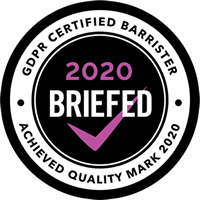
Saxon Woods Investments Limited v Francesco Costa [2025] EWCA Civ 708
10th June 2025
Saxon Woods Investments Limited v Francesco Costa [2025] EWCA Civ 708
The Court of Appeal has clarified that there are limits to the extent to which a director, in defending a claim for breach of the duty under section 172 of the Companies Act 2006, can rely upon their subjective opinion of what would be in the best interests of the company. It is now established that if the conduct in question contravened objective standards of honesty, there will have been a breach of duty, even if the director believed that the shareholders would ‘thank him in the long run’.
Edward Davies KC and Jack Rivett appeared for the successful appellant / petitioner, Saxon Woods Investments Limited, instructed by Stephenson Harwood.
The proceedings concerned a petition under section 994 of the Companies Act 2006 which Saxon Woods Investments Limited had presented in relation to the affairs of a company called Spring Media Investments Limited.
At first instance, the High Court had found that the Company had acted in breach of a requirement in a shareholders’ agreement to work in good faith towards an exit (which was defined as a sale of all or substantially all of the Company’s share capital) by a particular date, and that the First Respondent (who is the Chairman and a substantial investor in the Company) was responsible for the Company’s breach. The Judge also found that the First Respondent had misled the board of directors by giving them the impression that steps were being taken with a view to achieving a sale by the target date, when in fact they were not.
The High Court concluded that, in the circumstances, the Petitioner had suffered unfair prejudice. However, it declined to make an unconditional order that the First Respondent purchase the Petitioner’s shares. Instead, the Court held that the First Respondent would only be required to purchase the Petitioner’s shares if, at a further trial, the Court were satisfied that the Company would have been sold for more than US$75 million net of debt but for the Company’s breach of the exit provisions. Moreover, the Judge rejected the Petitioner’s case that the First Respondent had acted in breach of his duty under section 172 of the Companies Act 2006 on the basis of a finding that the First Respondent did sincerely believe that he was acting in the best interest of the Company by deferring the exit process.
The Petitioner and the First Respondent both appealed. In a judgment handed down on 9 June 2025, the Court of Appeal dismissed the First Respondent’s appeal, holding that the first instance judge had been correct to hold that the Company had breached the shareholders’ agreement.
By contrast, the Court of Appeal allowed the Petitioner’s appeal. Amongst other things, the Court of Appeal held that, in addition to being responsible for the Company’s breach of the exit provisions, the First Respondent had breached his section 172 duty and had acted dishonestly. It accordingly set aside the Judge’s order and made an unconditional order that the First Respondent purchase the Petitioner’s shares.
The judgment is of interest both in relation to its interpretation of exit provisions in shareholders’ agreements and its analysis of the scope and content of the section 172 duty.
Please click here to view the Judgment.



